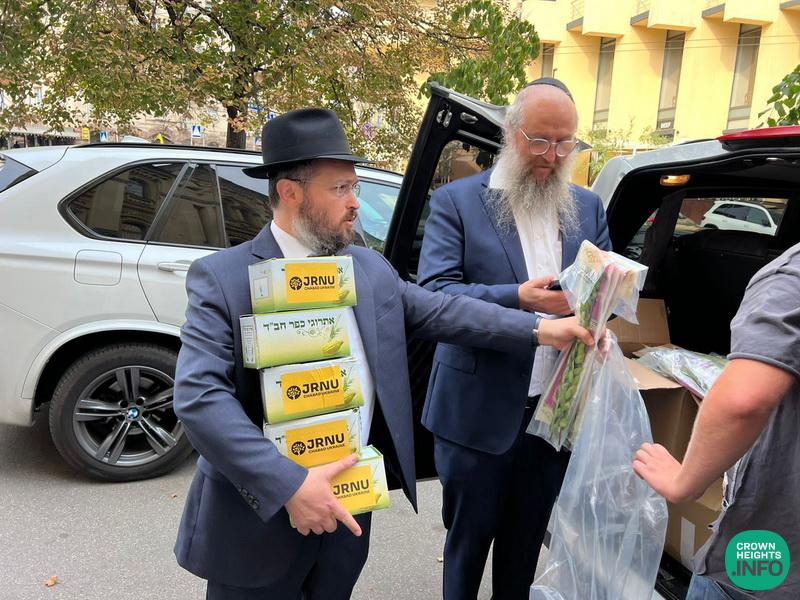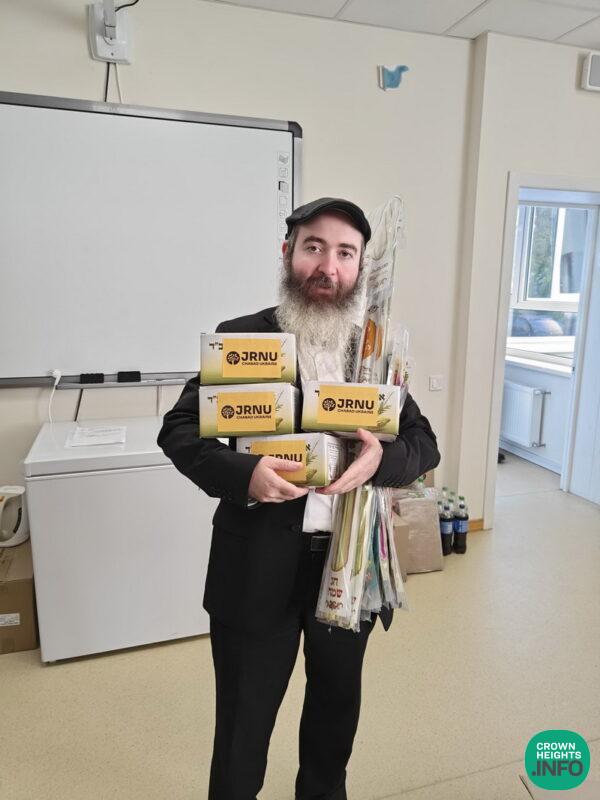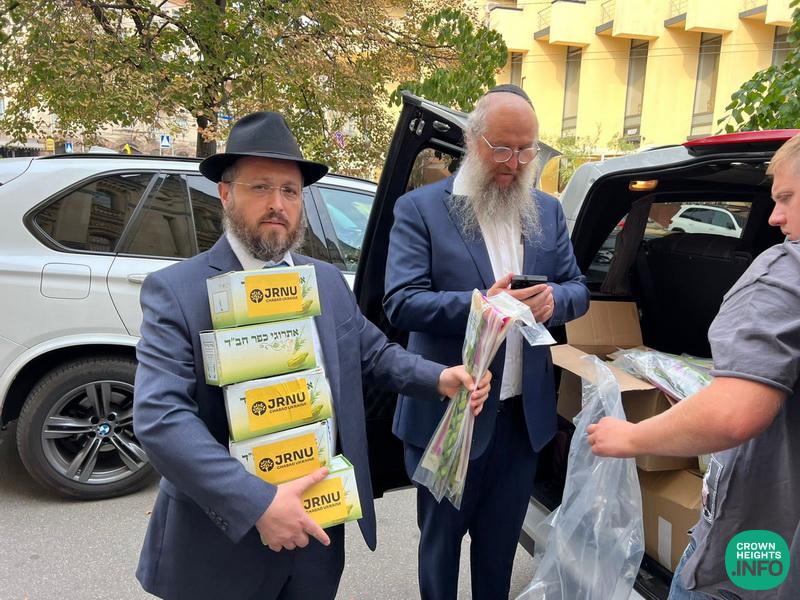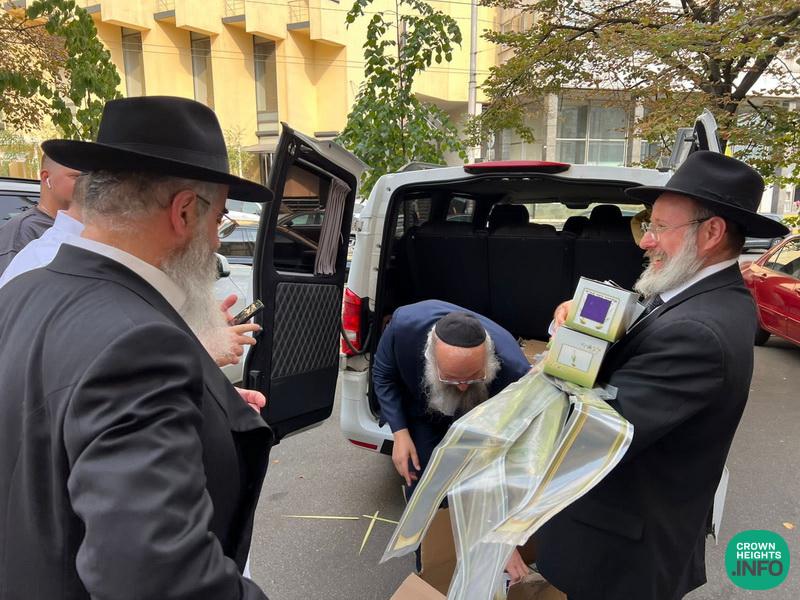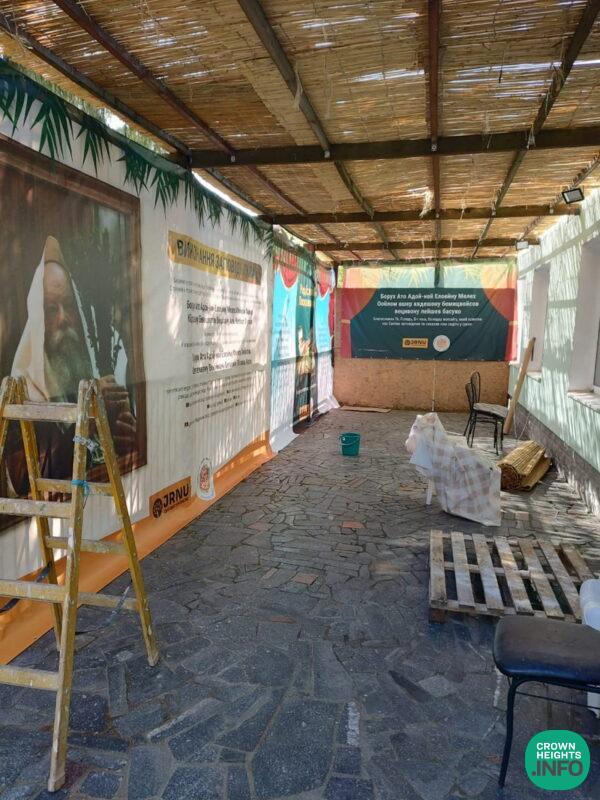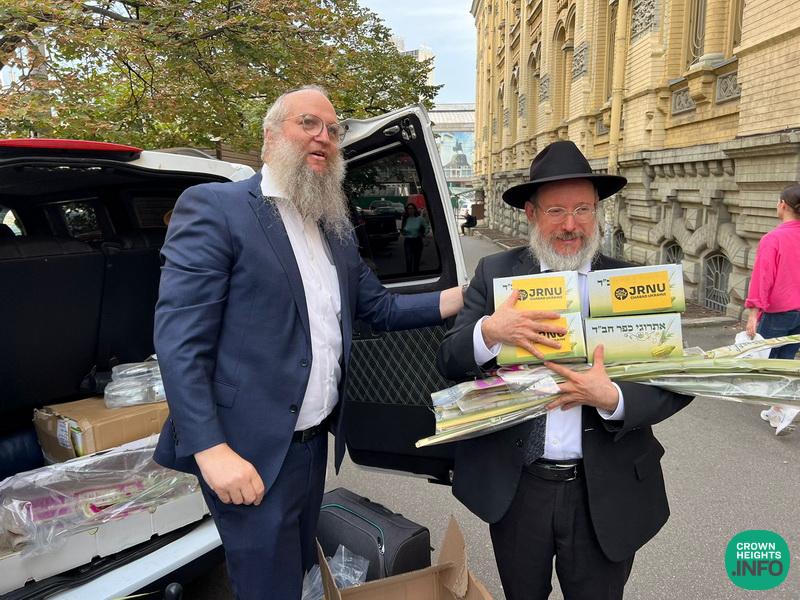
Despite War, Ukrainian Jewry Prepares for Uplifting Sukkot
As Sukkot approaches, the Jewish communities across Ukraine are making diligent efforts to ensure a joyous celebration in a nation grappling with conflict and uncertainty. Community centers, synagogues, and Chabad houses are busy constructing sukkahs throughout the country in preparation for the festive season, which will include joyous holiday meals and musical events. The communal Sukkot will be open through the entire holiday to ensure each of the country’s Jews can celebrate despite the challenges.
In Zaporizhzhia, Ukraine, Rabbi Nachum Ehrentrau, along with his wife, Dina, and their children, are eagerly anticipating hosting hundreds of people daily at Chabad-Lubavitch of Zaporizhzhia.
“We want people to come not just to eat but to spend time together,” emphasized Rabbi Ehrentrau. He also shared that Chabad is currently in the process of building a new two-story center, which will house a soup kitchen aimed at providing much-needed assistance to the local Jewish community. “We are working on the interior right now but require help in acquiring the necessary equipment. People are deeply appreciative of our continued presence, offering both material and spiritual support during these trying times.”
Meanwhile, the FJC and Chabad’s Jewish Relief Network Ukraine (JRNU), a unified initiative for funding and humanitarian work in Ukraine, is actively engaged in distributing food and supplies in preparation for the holiday.
In a remarkable display of unity and resilience, a logistical operation was successfully carried out to distribute the four species (the lulav, etrog, haddas, and arava) essential for the holiday observance to Jewish communities across Ukraine. This operation involved crossing borders, customs checks, and hours of transportation.
Rabbi Nachum Ehrentrau, who orchestrated this complex operation, shared his insights: “Bringing the four species to Jewish communities was not a straightforward task, especially during these challenging times. It began with sourcing the items in Israel, then transporting them to airports, going through customs, and finally delivering them across borders into Moldova. Afterward, it involved extensive travel within cities to ensure that every Jew had the opportunity to fulfill the holiday commandment.”
Reflecting on the magnitude of the operation, Rabbi Ehrentrau continued, “Every step presented its own challenges, and at any point, we could have lost the precious four species. This entire operation is nothing short of a miracle. I want to express my gratitude to everyone involved for their immense efforts, and I hope that this operation will be completed successfully, thanks in large part to the prayers of all those who wished for its success.”
